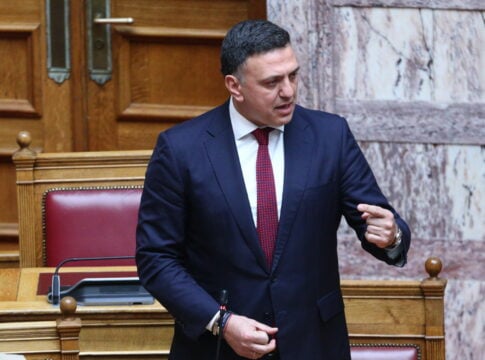Negotiations with the European Commission will begin in the next period in order to finalize the goals and integrate them into the 4-year Medium-Term Fiscal Structural Plan that will be submitted to the European Commission by September 20.
According to sources of the Ministry of National Economy and Finance, the targets set are compatible with the planning of the fiscal policy for the coming years and “reflect the significant progress achieved by Greece in all the indices that determine the sustainability of the Greek public debt.”
In the period following the outbreak of the pandemic (ie the three years 2021-2023), the debt-to-GDP ratio in Greece showed a record reduction in the history of the eurozone.
At the same time, Greece has returned to a healthy primary surplus, has regained investment grade thus significantly reducing the cost of public borrowing, and is showing a growth rate significantly higher than the European average.
“This positive performance is the result of a successful economic strategy, which allows the continuation of policies that encourage development and social cohesion,” the same sources noted.
According to sources, the Commission’s proposals to Greece foresee an increase in net primary expenditure of 3% in 2025, 3.1%-3.2% in 2026 and 2027, and 3% in 2028.
The limit on the growth of net primary expenditure shows how Member States, in this case Greece, can ensure that, by the end of a four-year period of fiscal adjustment (i.e. for the period 2025-2028) public debt can be considered to be in on a downward trajectory or remains at prudent levels in the medium term with a focus on the expenditure ceiling.
Meanwhile, the government has announced that it will proceed with additional measures to boost citizens’ incomes and further reduce burdens for 2025, amounting to 880 million euros.
These include:
- the reduction of insurance contributions by 0.5%, costing 225 million euros.
- the reduction, essentially abolition, of the vocational fee for professionals, costing 120 million euros.
- the permanent return of the Special Consumption Tax to farmers, costing 100 million euros.
- the increase of the student housing allowance (15 million euros).
- the increase in pensions, estimated to be around 400 million euros.
- the suspension of VAT on construction, costing 20 million euros.
The drawing up of the new 4-year Medium-Term Fiscal Structural Plan and its submission to Brussels after summer consultations will take place by September 20.
Another round of consultations will follow until November-December, which will be politically ratified by the Council of Finance Ministers.














